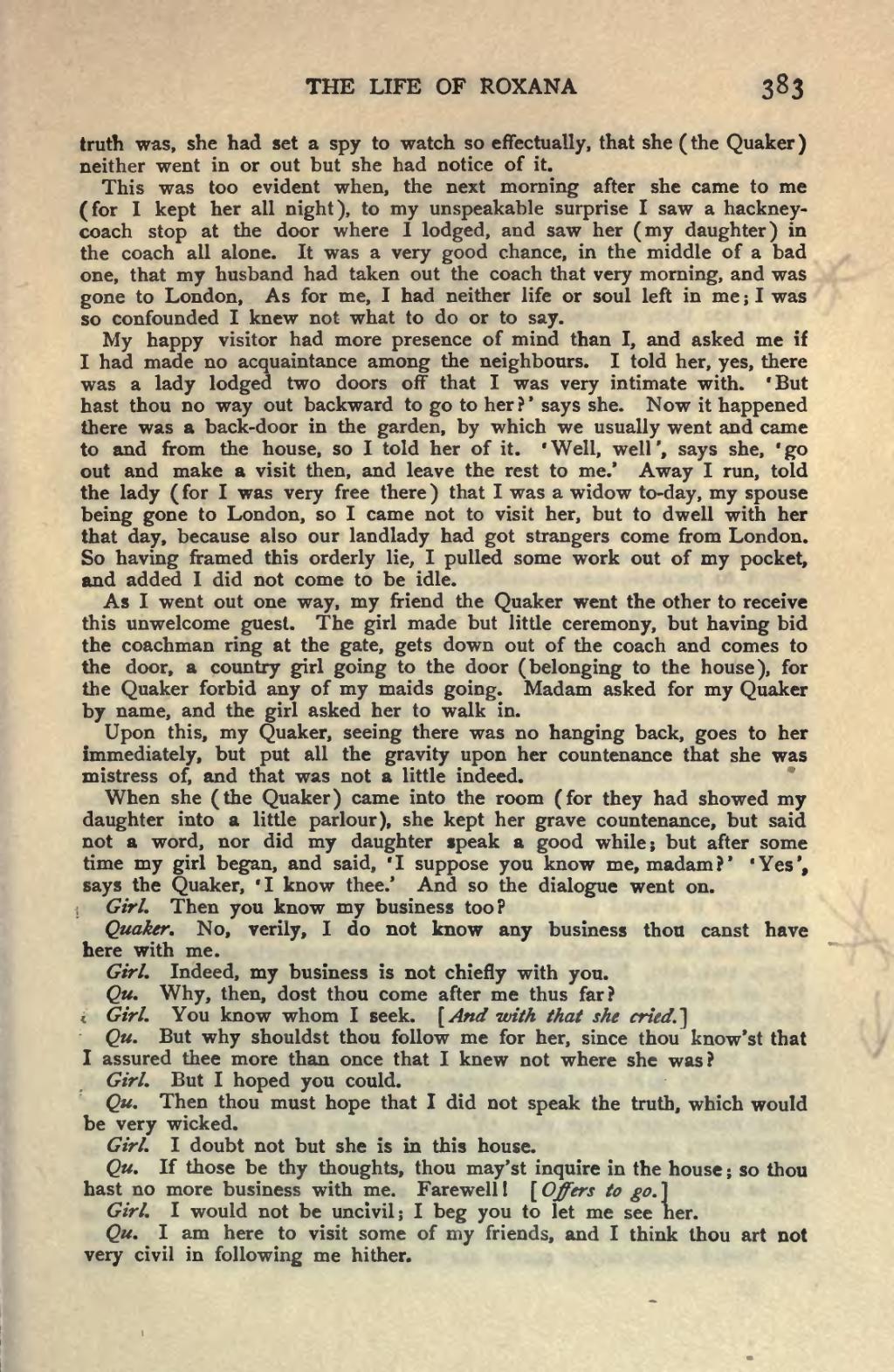truth was, she had set a spy to watch so effectually, that she (the Quaker) neither went in or out but she had notice of it.
This was too evident when, the next morning after she came to me (for I kept her all night), to my unspeakable surprise I saw a hackney-coach stop at the door where I lodged, and saw her (my daughter) in the coach all alone. It was a very good chance, in the middle of a bad one, that my husband had taken out the coach that very morning, and was gone to London, As for me, I had neither life or soul left in me; I was so confounded I knew not what to do or to say.
My happy visitor had more presence of mind than I, and asked me if I had made no acquaintance among the neighbours. I told her, yes, there was a lady lodged two doors off that I was very intimate with. 'But hast thou no way out backward to go to her? 'says she. Now it happened there was a back-door in the garden, by which we usually went and came to and from the house, so I told her of it. 'Well, well', says she, 'go out and make a visit then, and leave the rest to me.' Away I run, told the lady (for I was very free there) that I was a widow to-day, my spouse being gone to London, so I came not to visit her, but to dwell with her that day, because also our landlady had got strangers come from London. So having framed this orderly lie, I pulled some work out of my pocket, and added I did not come to be idle.
As I went out one way, my friend the Quaker went the other to receive this unwelcome guest. The girl made but little ceremony, but having bid the coachman ring at the gate, gets down out of the coach and comes to the door, a country girl going to the door (belonging to the house), for the Quaker forbid any of my maids going. Madam asked for my Quaker by name, and the girl asked her to walk in.
Upon this, my Quaker, seeing there was no hanging back, goes to her immediately, but put all the gravity upon her countenance that she was mistress of, and that was not a little indeed.
When she (the Quaker) came into the room (for they had showed my daughter into a little parlour), she kept her grave countenance, but said not a word, nor did my daughter speak a good while; but after some time my girl began, and said, 'I suppose you know me, madam?' 'Yes', says the Quaker, 'I know thee.' And so the dialogue went on.
Girl. Then you know my business too?
Quaker. No, verily, I do not know any business thou canst have here with me.
Girl. Indeed, my business is not chiefly with you.
Qu. Why, then, dost thou come after me thus far?
Girl. You know whom I seek. [And with that she cried.]
Qu. But why shouldst thou follow me for her, since thou know'st that I assured thee more than once that I knew not where she was?
Girl. But I hoped you could.
Qu. Then thou must hope that I did not speak the truth, which would be very wicked.
Girl. I doubt not but she is in this house.
Qu. If those be thy thoughts, thou may'st inquire in the house; so thou hast no more business with me. Farewell! [ Offers to go.]
Girl. I would not be uncivil; I beg you to let me see her.
Qu. I am here to visit some of my friends, and I think thou art not very civil in following me hither.
